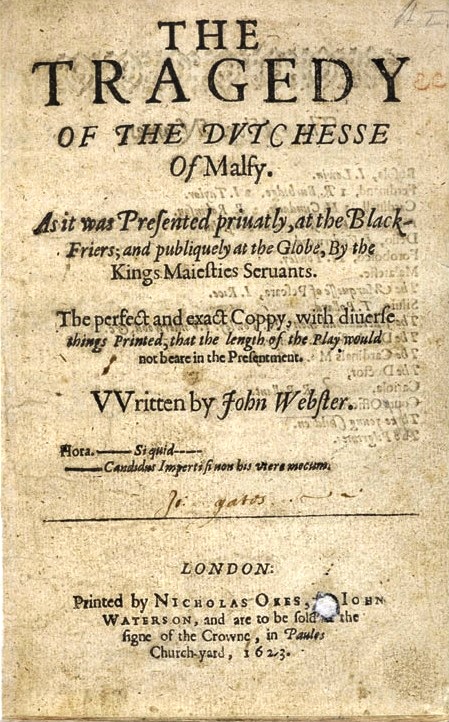Man is most happy, when his own actions are arguments and examples of his virtue.
More quotes from John Webster
Lay this unto your breast: Old friends, like old swords, still are trusted best.
English dramatist (1578-1634)
Though lust do masque in ne’er so strange disguise she’s oft found witty, but is never wise.
English dramatist (1578-1634)
For the subtlest folly proceeds from the subtlest wisdom.
English dramatist (1578-1634)
Whether we fall by ambition, blood, or lust, like diamonds we are cut with our own dust.
English dramatist (1578-1634)
In all our quest of greatness, like wanton boys, whose pastime is their care, we follow after bubbles, blown in the air.
English dramatist (1578-1634)
That friend a great man’s ruin strongly checks, who rails into his belief all his defects.
English dramatist (1578-1634)
Fortune’s a right whore. If she give ought, she deals it in small parcels, that she may take away all at one swoop.
English dramatist (1578-1634)
Eagles commonly fly alone. They are crows, daws, and starlings that flock together.
English dramatist (1578-1634)
Integrity of life is fame’s best friend, which nobly, beyond death, shall crown in the end.
English dramatist (1578-1634)
We are merely the stars tennis-balls, struck and bandied which way please them.
English dramatist (1578-1634)
Sorrow is held the eldest child of sin.
English dramatist (1578-1634)
Heaven fashioned us of nothing; and we strive to bring ourselves to nothing.
English dramatist (1578-1634)
All things do help the unhappy man to fall.
English dramatist (1578-1634)
Men often are valued high, when they are most wretched.
English dramatist (1578-1634)
When a man’s mind rides faster than his horse can gallop they quickly both tire.
English dramatist (1578-1634)
Man is most happy, when his own actions are arguments and examples of his virtue.
English dramatist (1578-1634)
‘Tis better to be fortunate than wise.
English dramatist (1578-1634)
A politician is the devil’s quilted anvil; He fashions all sins on him, and the blows are never heard.
English dramatist (1578-1634)
When I go to hell, I mean to carry a bribe: for look you, good gifts evermore make way for the worst persons.
English dramatist (1578-1634)
